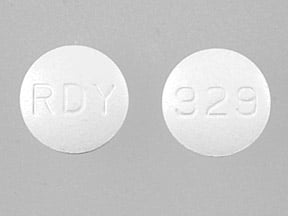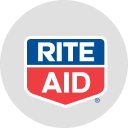
Starlix Coupons & Discount Card - Compare Prices Near You
nateglinide
Nateglinide is used alone or with other medications to control high blood sugar along with a proper diet and exercise program. It is used in people with type 2 diabetes. Controlling high blood sugar helps prevent kidney damage, blindness, nerve problems, loss of limbs, and sexual function problems. Proper control of diabetes may also lessen your risk of a heart attack or stroke. It works by stimulating the body to produce more insulin. Insulin is a natural substance that allows the body to properly use sugar from the diet.
Our Starlix coupons are free to use. You can print the coupon, email it to yourself, or receive the Starlix coupon via text message. To get your free discount, show the pharmacist your Starlix savings card which has the discounted coupon price. Use our filters below to edit the prescription box to match your needs. The Starlix prices will update based on your prescription needs. Above our Starlix coupons, you can change the location to see pharmacy prices in other areas. Our prescription discount card will update online with the specific pharmacy costs associated with your edits. Be sure to text, email, or print the Starlix savings card code that you need after editing the prescription box and location field. Show the discount card to your pharmacist before paying.
My prescription
Edit
120MG, Nateglinide (30 Tablets)
Select pharmacy

CVS
$21.72
COUPON PRICE
Walmart
$10.65
COUPON PRICE
Walgreens
$11.47
COUPON PRICE
Rite Aid
$11.75
COUPON PRICE
Albertsons
$21.24
COUPON PRICEStarlix savings card
Show this card to your pharmacist
CVS
$21.72
BIN
ID
PCN
GRP
019876
LH8B4BDE9A
CHIPPO
LHX
Powered by
Starlix dosage forms
The average cost for 30 Tablets of Starlix (nateglinide) at 120MG is $10.65 with a free coupon. This is 20.52% off the average retail price of $51.9
| Dosage | Quantity | Price from | Per unit |
|---|---|---|---|
| 120MG | 30 Tablets | $10.65 | $0.36 |
Starlix Side Effects
Weight gain may occur. If this effect lasts or gets worse, tell your doctor or pharmacist promptly. Remember that this medication has been prescribed because your doctor has judged that the benefit to you is greater than the risk of side effects. Many people using this medication do not have serious side effects. Nateglinide can cause low blood sugar (hypoglycemia) especially if you are taking other medicines for diabetes. Consuming large quantities of alcohol, not getting enough calories from food, or doing unusually heavy exercise may also lead to low blood sugar. Symptoms may include chills, cold sweat, dizziness, drowsiness, shaking, fast heartbeat, weakness, headache, fainting, tingling of the hands or feet, or hunger. It is a good habit to carry glucose tablets or gel to treat low blood sugar. If you don't have these reliable forms of glucose, raise your blood sugar quickly by eating a quick source of sugar such as table sugar, honey, candy, or drinking a glass of fruit juice or non-diet soda. Check with your doctor or pharmacist to find out what you should do if you miss a meal. Symptoms of high blood sugar (hyperglycemia) include increased thirst/urination. If these symptoms occur, tell your doctor right away. Your doctor may need to adjust your diabetes medication, exercise program, or diet. A very serious allergic reaction to this drug is rare. However, get medical help right away if you notice any symptoms of a serious allergic reaction, including: rash, itching/swelling (especially of the face/tongue/throat), severe dizziness, trouble breathing. This is not a complete list of possible side effects. If you notice other effects not listed above, contact your doctor or pharmacist. In the US - Call your doctor for medical advice about side effects. You may report side effects to FDA at 1-800-FDA-1088 or at www.fda.gov/medwatch. In Canada - Call your doctor for medical advice about side effects. You may report side effects to Health Canada at 1-866-234-2345.
Interactions
Many drugs can affect your blood sugar, making it harder to control. Examples include corticosteroids (such as prednisone), psychiatric medicines (such as olanzapine), fluoroquinolone antibiotics (such as ciprofloxacin), among others. Check your blood sugar regularly as directed and share the results with your doctor. Tell your doctor right away if you have symptoms of high or low blood sugar. Your doctor may need to adjust your diabetes medication, exercise program, or diet. Check the labels on all your nonprescription medicines (such as cough-and-cold products) because they may contain ingredients that could affect your blood sugar. Ask your pharmacist about the safe use of those products. Beta-blocker medications (such as metoprolol, propranolol, glaucoma eye drops such as timolol) may prevent the fast/pounding heartbeat you would usually feel when your blood sugar falls too low (hypoglycemia). Other symptoms of low blood sugar such as dizziness, hunger, or sweating are unaffected by these drugs. Other medications can affect the results of urine tests for sugar or ketones. Consult your doctor or pharmacist for more information.
